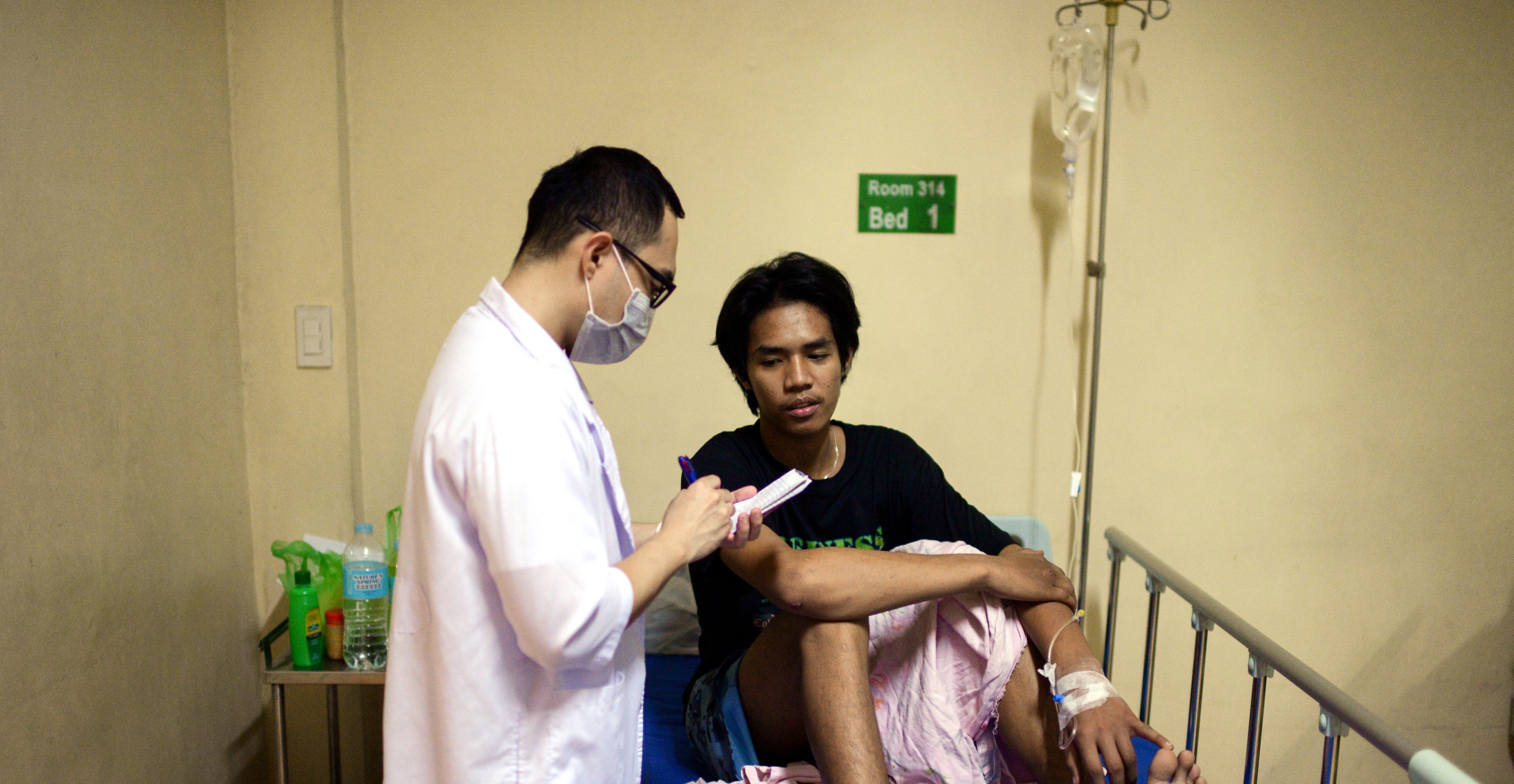These photos capture the world's first human trial of a potential coronavirus vaccine

A potential vaccine is in sight. Image: REUTERS/Karen Ducey
- The first human clinical trial of a potential COVID-19 vaccine was administered on Monday.
- Four volunteers were given their first of two shots of the vaccine. Forty-five volunteers are expected to participate in this trial.
- The vaccine won't be available to the general public for at least a year to see if it is both safe and effective.
- The novel coronavirus, which causes the infectious disease known as COVID-19, has infected more than 182,000 worldwide and killed more than 7,100 people.
Four healthy people were the first to get a trial COVID-19 vaccine on Monday.

The vaccine was administered to patients at the Kaiser Permanente Washington Health Research Institute in Seattle.

Forty-five volunteers will be apart of the clinical trial. The volunteers who were selected were screened by Kaiser to not be sick nor have underlying health conditions. However, they were not screened for whether or not someone might have had a mild case of COVID-19.

It will take at least a year to 18 months to determine if a vaccine for the novel coronavirus is safe and effective, National Institutes of Health experts have said.

Some of the participants may get a higher dosage of the vaccine, to see what dosage is most effective.

Volunteers will be given two doses. The second dose will be administered a month after the first.

This potential vaccine was developed by the National Institute of Health and the private biotech company Moderna.

The vaccine was created in 42 days.

The test vaccine works by producing harmless "spike" proteins, which will prompt the body to create antibodies. If a person were to be exposed to the real coronavirus, their body would be prepared to react quickly, as spike proteins are what allow the novel coronavirus to attach themselves to human cells.

If approved, it would be first to use just the virus' "messenger RNA" sequence and not the actual virus itself. The vaccine won't infect participants with the coronavirus that causes COVID-19 since the vaccine doesn't use the virus.

While participants don't risk getting the virus, the safety of the vaccine is still unknown. Scientists don't know what the immune response to the test will be yet.

While this is the first potential vaccine to make it into a clinical human trial, other vaccines are also underway. Before any vaccine becomes available to the general public, researchers have to be sure it is safe and effective.

Don't miss any update on this topic
Create a free account and access your personalized content collection with our latest publications and analyses.
License and Republishing
World Economic Forum articles may be republished in accordance with the Creative Commons Attribution-NonCommercial-NoDerivatives 4.0 International Public License, and in accordance with our Terms of Use.
The views expressed in this article are those of the author alone and not the World Economic Forum.
Stay up to date:
COVID-19
Forum Stories newsletter
Bringing you weekly curated insights and analysis on the global issues that matter.
More on Health and Healthcare SystemsSee all
Judith Love
November 18, 2025







